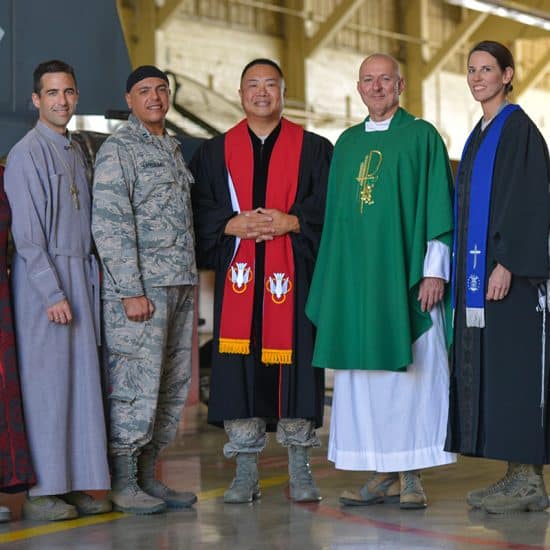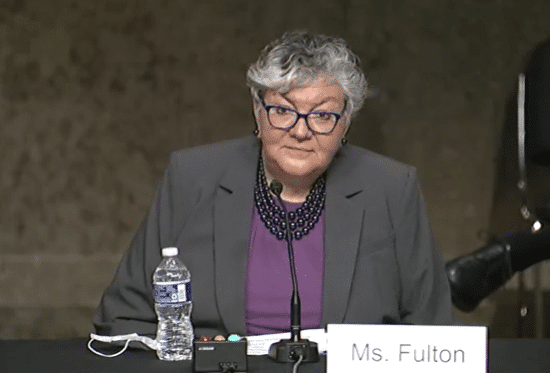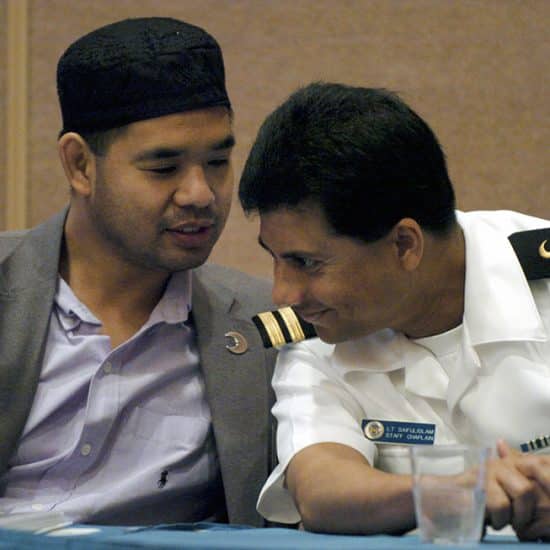Perhaps the most effective ministry to military personnel comes from other servicemen and women and their families. That’s part of the premise behind some military efforts to provide multi-level support — including spiritual nurture — for active-duty soldiers and retirees.

Military personnel can help those on active duty and those returning home. (Shutterstock photo)
|
Gary “Sam” Sanford officially retired as a U.S. Army chaplain in 2000. But he didn’t leave ministry — or his compassion for soldiers — behind.
Now, not only does he minister directly to servicemen and women and their families, he also encourages nearly everyone he meets to do so as well.
“I try to get involved in as many places as I can,” he said.
The longtime chaplain understands military personnel from two sides — first as an Army Reserve medic for six years and then as an Army chaplain for 30 years, retiring as a colonel.
Because he knows firsthand how military service, especially during war, affects soldiers, Sanford constantly looks for ways in which to help them. Although he ministers to all, he concentrates specifically on ways to help those with post-traumatic stress disorder.
Not that he has much time left in which to squeeze one more activity each day. Currently, he works part-time as a chaplain at the Dwight D. Eisenhower Veterans Administration Medical Center in Leavenworth, Kan., and is pastor of The Rock of Ages Church in the city.
In addition, he is a volunteer chaplain at the Lansing Correctional Facility and at the U.S. Penitentiary at Leavenworth, concentrating on veterans. He serves as chaplain for Veterans of Foreign Wars Post 56, the largest in the state, and leads a men’s prayer group on the Fort Leavenworth post early each Thursday morning.
And Sanford is vice president of the Leavenworth Ministerial Association and a member of a local Lions Club.
The Rock of Ages Church has become a “rock” for veterans, partly because most members are veterans or family members of veterans. The congregation hosts monthly dinners for veterans suffering from PTSD. Sanford usually invites a guest speaker, often a veteran who has overcome specific problems.
The ministry Sanford does bridges the gap between the church and the military. Active-duty chaplains also find ways to bridge soldiers’ military and civilian needs.
For Chaplain (Col.) Gary Gilmore, service to military personnel takes a broader approach. As Missouri National Guard Joint Forces Chaplain and Chief of the Spiritual and Emotional Resiliency section, he focuses his mission on enlisting congregations as a statewide support network.
When he discovered the Partners in Care program, created by Chaplain (Col.) William Sean Lee of the Maryland National Guard, Gilmore saw its potential in Missouri (moguard.com/partners-in-care.html).
The program developed from the idea that congregations could support National Guardsmen and women and their families in their own communities. Chaplains and other leaders could refer soldiers to churches with the services and resources servicemen and women need.
Gilmore continues to seek congregations willing to be partners. “The network is growing, but the program still needs area coverage. The only way we can cover Missouri is by working through the churches across the state,” he said.
The chaplain sees four issues he considers most pressing for Guard personnel: relationships in their marriage and as parents, substance abuse, medical problems and financial concerns.
Gilmore also wants to see more churches involved for the spiritual support they provide. “Moral injury” — when a soldier violates his or her moral code — wrecks havoc on relationships. Help for these individuals falls in the “pastoral care lane” because ministers “deal with redemption and hope,” he said.
Suicide intervention efforts among National Guardsmen and women have risen in Missouri, which has contributed to the decline in the suicide rate. Gilmore believes church involvement is partly responsible. “We usually look for a pastor with a master’s degree and who is connected to the community,” he said.
The connection between military and faith-based efforts provides a holistic, community approach.





